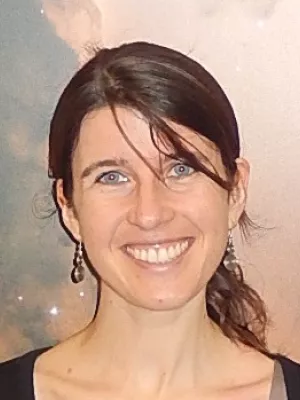
Caterina Doglioni
Affiliated

Benchmark data and model independent event classification for the large hadron collider
Author
Summary, in English
We describe the outcome of a data challenge conducted as part of the Dark Machines (https://www.darkmachines.org) initiative and the Les Houches 2019 workshop on Physics at TeV colliders. The challenged aims to detect signals of new physics at the Large Hadron Collider (LHC) using unsupervised machine learning algorithms. First, we propose how an anomaly score could be implemented to define model-independent signal regions in LHC searches. We define and describe a large benchmark dataset, consisting of > 1 billion simulated LHC events corresponding to 10 fb−1 of proton-proton collisions at a center-of-mass energy of 13 TeV. We then review a wide range of anomaly detection and density estimation algorithms, developed in the context of the data challenge, and we measure their performance in a set of realistic analysis environments. We draw a number of useful conclusions that will aid the development of unsupervised new physics searches during the third run of the LHC, and provide our benchmark dataset for future studies at https://www.phenoMLdata.org. Code to reproduce the analysis is provided at https://github.com/bostdiek/DarkMachines-UnsupervisedChallenge.
Department/s
- Particle and nuclear physics
- eSSENCE: The e-Science Collaboration
- MAX IV Laboratory
Publishing year
2022-01-01
Language
English
Publication/Series
SciPost Physics
Volume
12
Issue
1
Document type
Journal article
Publisher
SciPost
Topic
- Accelerator Physics and Instrumentation
Status
Published
ISBN/ISSN/Other
- ISSN: 2542-4653

